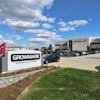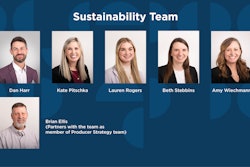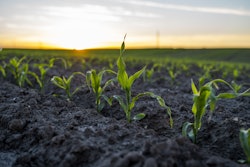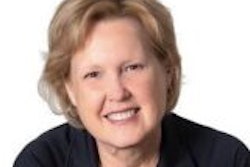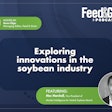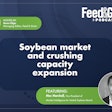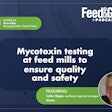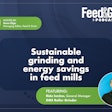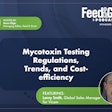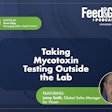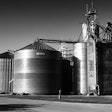Steven Kilger, the host of theFeed & Grain Podcast, speaks toJennifer Deitloff, Scoular’s chief diversity officer, about the company'ssecond annual Sustainability Report.
Scoular's report shows the company's progress on its five pillars of sustainability:
- Reducing its carbon footprint
- Fostering responsible product sourcing
- Upholding workplace health and safety
- Promoting diversity and inclusion
- Engaging in its communities
Deitloff discusses Scoular's journey to becoming more sustainable, the meaning of the word sustainable and what companies should do to when starting their own program.
Episode Transcript
Steven Kilger00:01
Hey everybody. My name is Steven Kilger. I'm the managing editor atFeed & Grainand the host of theFeed & Grain Podcast.Thank you so much for joining me today for another episode. My guest today is Jenny Deitloff. She's the chief diversity officer at Scoular.
Jenny was a delight to talk to. We discussed Scoular’s recently released annual sustainability report, Scoular’s five pillars of sustainability, what the word sustainability means, and what companies should be doing to start their own kind of sustainability journey. So, it was a really great discussion, I hope you enjoy it as much as I did.
Kilger00:36
But before we start with that, I have a bit of housekeeping to do. If you're listening to this podcast within a podcast app, please consider subscribing and or leaving a review. It really helps the podcast out. If you have an idea for a topic that you would like me to cover or someone in the animal feed, grain handling, are, you know, related industries that you think would be a good guest. Let me know! You can reach me by going to thispodcast pageonfeedandgrain.com. There's a little button right under the title that will let you send me an email directly. I'd love to hear from you about this or anything else. All right, that's all done. So, let's sit back and enjoy the conversation.
Kilger01:12
Hi, Jenny. Thank you so much for agreeing to be on the podcast. Can you tell me a little bit more about yourself and what you do at Scoular?
Jenny Deitloff01:21
Sure. Absolutely. Thanks. Thanks for having me, Steven. I live in Omaha with my husband and two teenagers, and two lovely and naughty dogs, who did not make an audio appearance during this podcast. I'm an attorney by trade. I started my law practice at a large multi-service firm in Omaha, practicing in the labor and employment group. From there, I moved in-house with a couple of different companies, including Conagra brands, in a global labor employment role. Thereafter, came to Scoular a little over five years ago. At Scoular, I lead our employment litigation compliance and regulatory function in the legal department. And I serve as the Chief Diversity Officer and lead our sustainability function and sit as a trustee on the school foundation.
Kilger02:02
That's great. I love Omaha. I've only been there a few times. But every time I'm in that city, I think, this is a nice Midwestern city.
Deitloff02:09
Yeah, it's nice when you can avoid the highs and lows of winter and summer. It's great.
Kilger02:14
Yeah, here in Wisconsin, is the same thing, right? We have maybe like three really nice months out of the entire year, which is like somewhere in spring and fall and then it's too hot, humid, or too cold. Well, thank you so much again. So, the reason you're here is to talk about what Scoular just released, your second annual sustainability report. There's been this big project you guys have been going on. I wanted to talk to you about it, because as you know, sustainability is just a huge topic in the industry right now. There are a lot of people out there who have no idea where to even start. So, I mean, these guys are not only doing something great for yourself, but it's kind of like setting an example leading the way for the rest of the industry, which is really cool. Why did Scoular decide to devote so much time and effort to sustainability? And why make your efforts so public where everyone can read about them?
Deitloff03:09
One, we're just excited about the strategy and the efforts that we've had to date within our different sustainability pillars. In the report, we wanted to highlight some of the great work that's been done by so many in the organization who are just really committed to the work. We're also really at our core, Scoular, a solutions-based company with a bias for action. As you know, with transparency comes even more accountability, which I believe is a good thing. So, our report hopefully highlights a little bit of what we've been doing and what we hope to do, and it makes my knowledge points along the way,
Kilger03:41
I'm not going to lie, I'm a sucker for well laid-out reports with graphs, charts and all those things. So, it was really it was a really good read. Really pleasant to flip through and see what you guys are doing.
Deitloff03:54
Well, we have a phenomenal brand marketing team that does all that. I can't take any credit for the layout or the visuals.
Steven Kilger04:00
But next time you see them, let you know at least one reporter was really impressed.
Deitloff04:06
Okay, I'll pass that along.
Steven Kilger04:07
You mentioned the five pillars. Can you tell me a little bit more about those?
Deitloff 04:11
When we started to build our formal sustainability structure a couple of years ago, we wanted to have a structure that was both recognizable in the industry and sort of the public at large but also focus on those areas where we felt we could have the most meaningful impact. Just organizing them into pillars makes it easier for us to define progress as well as sort of engage internal and external stakeholders. We have five pillars. We have reducing our carbon footprint, fostering responsible product sourcing, engaging in our communities, promoting diversity and inclusion, and upholding workplace health and safety.
Steven Kilger04:49
Those are laudable goals. It's nice to see a company that can lay them out at the start of your sustainability journey. Well, actually, I want to go a little more in-depth on the five pillars. So go into a little more detail on each one of them, what exactly the goal is and what you're trying to do to accomplish them.
Deitloff05:10
是的,当然。对于每个我们的支柱,我们laid out kind of some specific commitments that we've identified that we think will be most impactful and realistic. No surprise around carbon. The goal is really centered around reducing greenhouse gas emissions and increasing renewable energy consumed. A lot of our work goes toward identifying and setting, tracking, and understanding our metrics and then working to meet those commitments. Our responsible product sourcing group that is really focused on both our ecosystems and products.
Deitloff05:44
真的想要发挥我们的作用,茶的价值n around safe, nutritious, and high-quality food, recognizing that biodiversity and habitat and exploitation of natural resources are concerns and something that we need to work forward to minimize engaging in our communities is really focused around really being a good community partner in all the places where we operate. Scoular has over 1,400 employees spread out over about 100 different facilities in North America and Asia. While we have some overall corporate goals around the community, we also recognize that we want to be engaged in meaningful ways and rely on the folks that live in those communities. So, tell us what's needed.
Deitloff06:28
That's really broken into a couple of different parts. It's really around investment from our school, the school, or the foundation, providing money to nonprofits in areas that line up with our strategy, and volunteer hours. We're really working to encourage Scoular employees to get more engaged in things that they care about in their communities and making that easy and accessible for them to do.
Thirdly, just partnerships. So, thinking about how we can engage in strategic partnerships with other either nonprofits or other companies to really help kind of move the needle in that area. Diversity and inclusion is one that's sort of been a passion of mine for a long time. And I think that's sort of the obvious you had one of our partners on not too long ago, Ebony Webber, with of MANRRS, so that was a great listen.
Steven Kilger07:12
Yeah, she's great.
Deitloff07:14
She is. She's critical to our strategy as well. It's no secret that the agriculture industry is trailing behind as an industry when we think about diversity, equity inclusion. Our strategy is designed to be part of the growing group of companies that want to change that and make our company just a great place to work for everybody.
Fourth, upholding health and safety is making sure that our workplace continues to be safe for everyone. So, everyone goes home at the end of the day injury-free, and making sure that we're constantly looking at processes, procedures and employee training resources for leaders to make sure that we have a safe environment.
Steven Kilger07:52
Well, it's, it's great because you guys have taken sustainability in and made the goal larger. It's more about the sustainability of your company as a whole. Because let's face it, we not only should have more diverse people in the industry, but we also need them to be in the industry. We are not in the same world where you can go out, pick up some farm kids to work at your grain elevator, and be done. In keeping up with the kind of tradition of these grain facilities, feed facilities being, you know, part of a small community, which is also really important to those small communities. That all sounds great.
Deitloff08:32
Yeah, absolutely.
Steven Kilger08:33
It's great to have all those things kind of laid out. But how's it been for the first two years? What have you guys learned along the way in actually kind of ratcheting up to meet these goals?
Deitloff08:43
Great question. We have learned a lot, and we are, full disclosure, still learning. I don't think that's a surprise to anyone. But we know we have an important role to play just where we sit in that value chain. Then we have an opportunity to do better. I think we've learned about the right kind of structure internally and how we can move the work forward. We know requires engaging the passions of our business leaders to help further the work and structure that in a way that makes sense.
Deitloff09:12
The sustainability landscape continues to change. You see different requirements and different expectations from different types of industries. Depending on where you sit in the organization, you have a different expectation on what that looks like. It's making sure we're talking to our customers, talking to our producers, knowing what's going on in the industry, partnering with other companies, so we continue to have our work rightsized for the organization and to actually have some impact. So long way short of saying -- we've done a lot, we've made a lot of headway, and we still have a lot more learning and hard work ahead of us.
Kilger09:49
Definitely. One of the biggest problems is that sustainability is such a broad term that means such different things to so many different people. So, it's a challenge right there, right? Just focusing in.
Deitloff10:00
是的,这个术语“可持续性”。我想很多people, even though that's how most companies structure their reporting, many people think of sustainability, really, as just environmental sometimes. So, I like to use synonymous for corporate responsibility or ESG.
Kilger10:18
That's a good term, because you're right. When you think sustainability, you think environment, right? That's what you think about. But you guys are doing so much more than that, which is important to get out. So, let's get into the report itself. What are the highlights for you? What's interesting to you about the report?
Deitloff10:33
As I mentioned before, I think I have a real bias around correction on diversity, inclusion and community. There's just a lot that's been going on there. We have our community pillar. I think I mentioned one of the things that we're doing in addition to providing monetary payments to certain nonprofits. That’s a certainly important part of it, but the other piece is just getting our employees more engaged and involved in our communities.
We launched a nonprofit board training program for employees who are really interested in serving on a nonprofit board but maybe don't know how to go about it, don't know how to get connected and more. So, we have a local organization that does training for us about how to be a good board member and providing support to employees who want to serve in that capacity. Then we almost try to do a little bit of a matchmaking situation and leverage the leaders in our organization, who are very involved in the nonprofit world, to try to figure out, you know, who might need a board member with the kind of skillsets they're looking for.
Deitloff11:33
That's been a really exciting launch for us. We're about to do another training here coming up in the next couple of months. It's been exciting. But that's one.
The other is our communities and thinking about how we show up in the communities where we operate. Again, it shouldn't be Omaha telling other communities, "Here’s what you need, and here's the money." We're leveraging our foundation to really think about what our employees are passionate about and locations where they operate, what can help move the needle on basic human needs.
On the diversity inclusion pillar, there's a lot going on there. That's very exciting. We have just launched our third employee resource group. It's Scoular Ethnicities and People of Color which joins our other two, Women's Leadership and LGBTQ-Plus Organization. We have just engaged executive sponsors for those organizations that continue to add programs to provide educational leadership opportunities. Most recently, we did a bias training, and we offered it to all of our employees and had over 600 people attend. So, we're getting good engagement with our employees, which is great. I could go on and on. So, I'll pause there.
Kilger12:48
This is all great information about the pillars if you want to keep going. I think it’s all very relevant. It's really interesting to hear what you are of doing on each one.
Deitloff12:58
Of course, there are a couple more things I'll know this relates to our diversity inclusion pillar. But I mentioned we are a global organization and growing quite significantly in Asia. We just launched a DNI committee in Asia that's combined with our employees in Singapore, China, Indonesia, Myanmar and, coming soon, Vietnam. That's been really fun to see because we're localizing our opportunities for engagement there and have a group of really passionate leaders who are wanting to lead the strategy for Asia. That's been fun to be a part of on the carbon side.
We just recently had a couple of new hires that have a wealth of experience on all things baselining and metrics and carbon focus. As I mentioned before, we're really focused on reducing greenhouse gas emissions and the value chain carbon footprint. Several projects are in various different stages, but the heavy focus this year is on data collection and measurement. I'm excited to get that under our belts.
Our product sourcing group launched aprogram called Encompass, which is really an exciting program. I have to give a huge call out to the business teams that worked on that. But that's a really cool program where they developed and launched a program that the goal is to bring transparency to sustainability in the supply chain by helping to increase the volume of sustainable sources, and sort of incentivizes additional producers and others to meet certain certification requirements. In turn, be able to get a higher margin for those products that are more sustainable. So yeah, lots of cool things going on.
Kilger14:36
Yeah, it sounds like it. I mean, well, it's a journey. It's constantly kind of growing and learning, and the sounds like you guys have made pretty big strides, though, for just a couple of years. I mean, that's impressive.
Deitloff14:49
We've had things that didn't go the way we thought they would, and you have to readjust. I think you mentioned before that there's so much you can do in all of these spaces, and there are a lot of great things that our organizations and people aren't doing. You just have to really think about, okay, well, we got to start somewhere. So, let's just get moving and have a strategy behind it.
Kilger15:08
Getting started somewhere, what advice would you give to other companies who are thinking of starting a sustainability project like this, especially smaller, mid-sized companies that need help knowing where to start?
Deitloff15:19
The biggest piece of advice I would have is to tie it to the strategy. Our CEOPaul Maasswas very intentional during the strategy phase, such that one of our overall company's strategic objectives is to evolve our culture. That strategic alignment really provides the structure and support for us to enable us to put resources and attention toward the work.
Appointing a chief diversity officeraligning budget dollars was really intentional. It allows us, as a company, to be able to talk about this work as truly part of our business strategy as well beyond sort of just the right thing to do. And I think the second thing I would say is that people shared with me when we were getting started that I thought was very helpful was just think about, you know, your organization best, and what will resonate and what wrong and what will be most impactful, and then get started.
Deitloff16:08
There are so many different ways to engage in corporate responsibility, and finding some areas that have an impact, you've got employees with a passion around, that really helps, will start getting the ball rolling. Don't be afraid to partner with other companies. I have found in this space that people in sustainability or diversity, inclusion roles are really willing to help out and share best practices and learnings. The networking and engagement with others doing the work, I think, is really cool.
Kilger16:35
It really is about committed to it, right? You can't do it halfway. You have to commit to it, take risks and try it. T
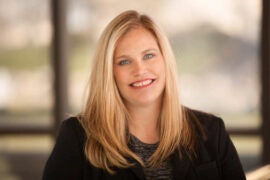
hat's all great advice. Those are all the questions I have. Is there anything else you'd like to talk about?
Deitloff16:59
That's right, well, and maybe I'll just make a plug for your listeners. If there's other sustainability, people listening, and you have an interest in partnering with us on a project that you think will be impactful. We love partnerships and working together strategically.
Kilger17:14
Oh, yeah, I would encourage that too. We're all in this together. Well, thank you so much, Jenny, for stopping by. Thank everyone out there for listening. There will be links to the sustainability report in the show notes. You'll be able to go see that and check it out in more detail. Thank you, Jenny, and thank you, everyone, for listening.

.jpg?auto=format%2Ccompress&crop=faces&fit=crop&h=48&q=70&w=48)



